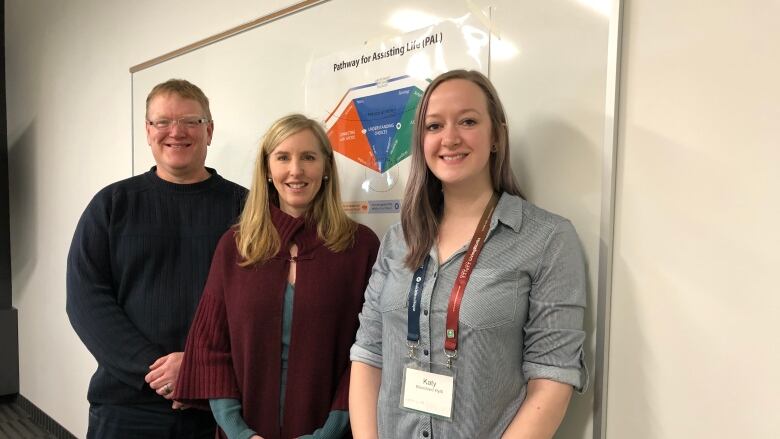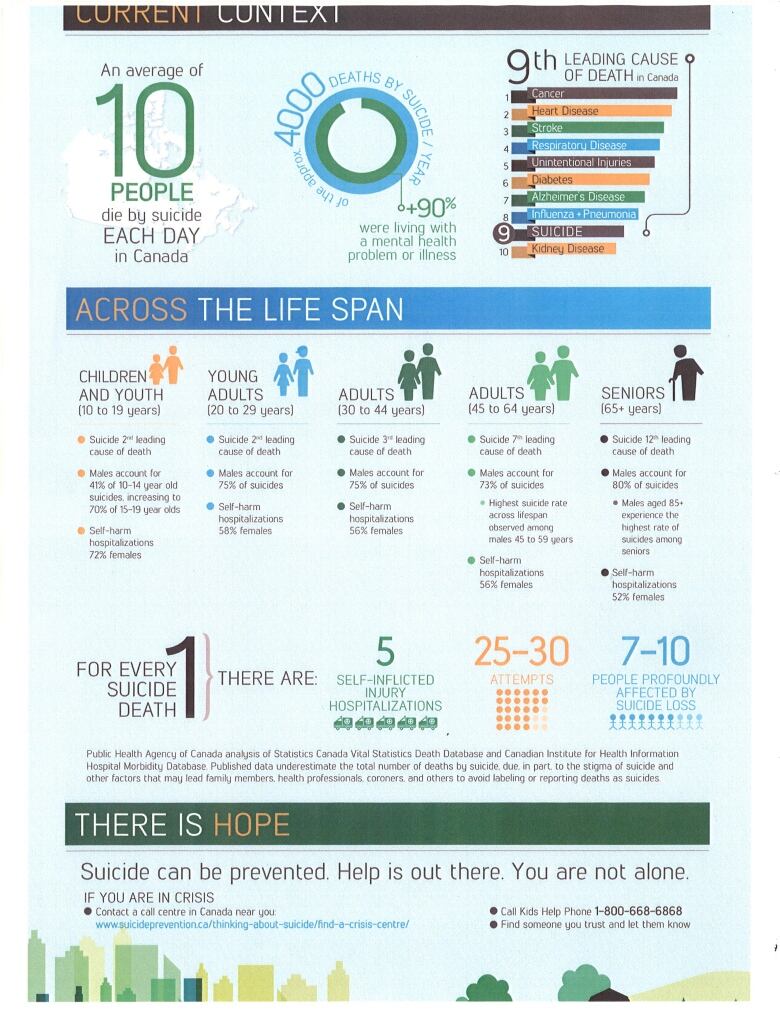Educators in Sudbury get specialized training to help with suicide intervention
A group with the Rainbow Board have learned skills to recognize if someone is at risk of suicide

It is a sad reality for teachers and educators as they often face students who are at risk of suicide.
This week, staff with the Rainbow District School Board gathered in Sudbury to receive training in suicide intervention.
Maureen McNamara isthe principal at Lasalle Secondary Schooland one of the participants at the two day training.
"Unfortunately, I have encountered it all too often, in my time especially as a administrator, going on 13 years now," she said.
"You are often at the front line of these and faced with these very sad and tragic scenarios of a young person's life and the decisions that they are faced."
McNamara says this type of training builds that confidence,capacity and skill set to do the right thing for the student when they need it.
"All principals need to acknowledge that every young person has the capacity to think about suicide and the capacity to follow through," she said.
To know and understand "is a huge step in the right direction to say yes, it can happen in your school and how are we equipped to deal with that," McNamaraexplained.
Katy Blanchard Hytti is a social workerwith the board and one of the trainers of ASIST, Applied Suicide Intervention Skills Training.
She says the training begins with people examining their own attitudes and beliefs with suicide and then getting them to a point where they can use a model to help people.
"Safe for now"
She says the main thing is to keep them "safe for now", for the immediate future and the next few days and then make a plan to get them support.
"I have had examples say of studentshaving thoughts of suicide, they have a plan to do it," she said.
"They may have said, well, you know, I'm not going to do it today or tomorrow, but it's been kind of on my mind and I've been thinking about it."
Blanchard Hytti says it is important to train as many people as possible becausesocial workers can't always be there.
She says if you think someone is suicidal, you need to be brave and ask them directly. Then you can listen to them and take action to get them help.
"There is a common misperception that asking about suicide creates suicide ideation and research has shown that that that is not true."
Helping students
Braden MacKinnon,a special education teacher at Sudbury Secondary School says he's very glad to have the training.
He says he had a student come to him with thoughts of suicide and he was able to convince him to go to the crisis treatment centre that day.He says, he walked him downtown to the centre just to make sure.
"You don't know when you see them come intoyourclassroomwhatthey go through on a daily basis."
MacKinnon says a big takeaway from the training is that everyone can be helped and we need to watch for the signs.
"They're very, very subtle and sometimes deep under the surface so be really observant about the signs."













_(720p).jpg)


 OFFICIAL HD MUSIC VIDEO.jpg)
.jpg)



























































































